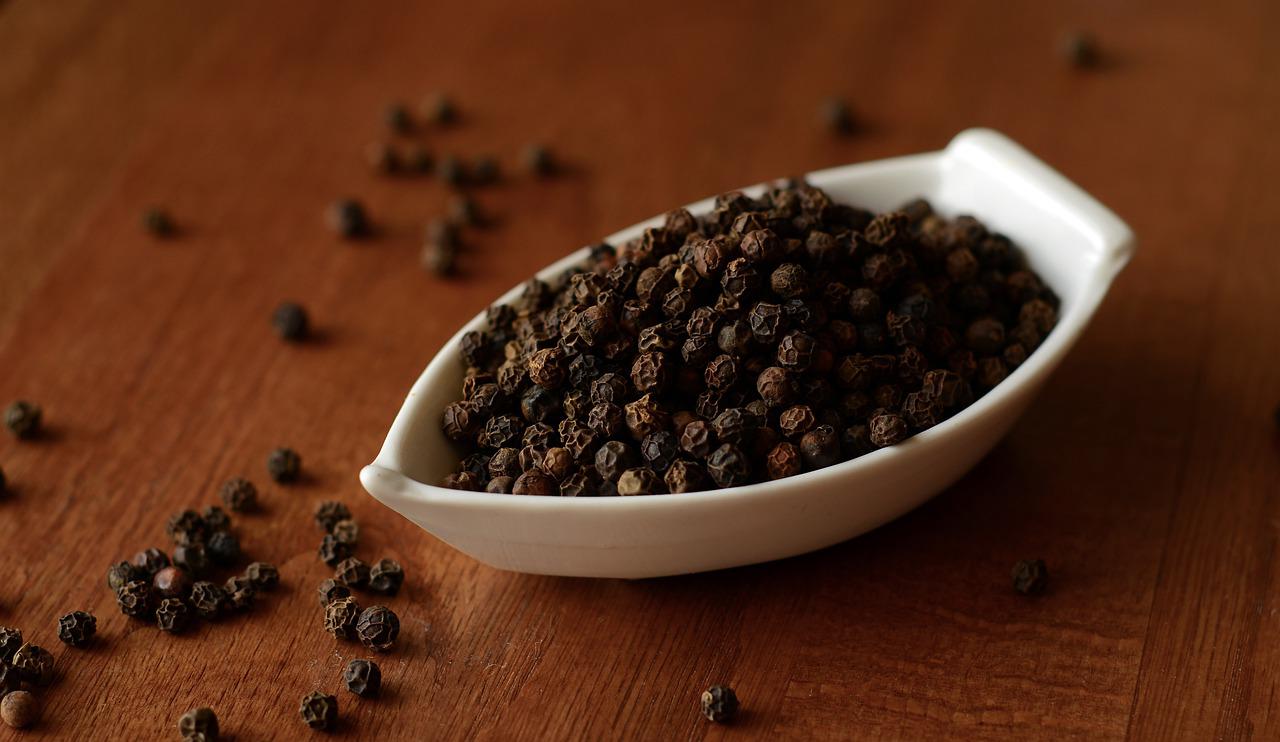
When it comes to weight loss, most people immediately think of rigorous workouts, strict diets, and a dramatic overhaul of daily habits. But sometimes, it’s the subtle changes—the quiet additions to your routine—that can have a surprising impact. Enter peppermint tea: a humble herbal infusion with a long history of healing, now gaining attention for its role in weight management.
While it’s not a fat-burning miracle, peppermint tea works on several fronts to support weight loss naturally, making it a smart addition to your wellness toolkit. In this post, we’ll unpack the science-backed benefits of peppermint tea and explore how you can use it effectively in your daily routine.
🌿 Why Peppermint Tea?
Peppermint tea is made from the leaves of the peppermint plant (Mentha piperita), a hybrid of watermint and spearmint. It contains menthol, menthone, and various volatile oils known for their soothing and digestive properties. Beyond its calming scent and cooling taste, peppermint tea has a unique ability to influence appetite, digestion, and metabolism—all critical elements in managing your weight.
Let’s delve into the five key ways peppermint tea supports weight loss, followed by practical tips to make it work for you.
✅ 1. Curbing Cravings and Suppressing Appetite
One of the biggest obstacles in any weight loss journey is controlling hunger and emotional eating. Peppermint tea helps here in two major ways:
🔬 The Science:
Studies suggest that the aromatic compounds in peppermint, particularly menthol, may influence the satiety centers in the brain. The scent alone can help reduce appetite and diminish cravings—especially for sweets and processed snacks.
🛠 How to Use It:
- Drink a cup 20–30 minutes before meals to reduce appetite naturally.
- If you’re prone to snacking late at night, replace your usual treat with a warm mug of peppermint tea.
- Keep dried peppermint or a teabag at your work desk for mid-day cravings.
“Sometimes, what feels like hunger is actually stress or dehydration. Peppermint tea helps tackle both.”
✅ 2. Boosting Digestion and Beating Bloating
A sluggish digestive system can lead to bloating, discomfort, and poor nutrient absorption, all of which can indirectly sabotage your weight loss efforts.
🔬 The Science:
Peppermint tea is a known carminative, meaning it helps relax the digestive tract, reduce spasms, and promote the smooth passage of food and gas. It also increases bile flow, helping the body break down fats more efficiently.
🛠 How to Use It:
- Sip on peppermint tea after meals, especially after heavy or high-fiber meals.
- If bloating is a common issue, try taking peppermint tea twice daily—after lunch and dinner.
“Feeling lighter isn’t always about losing pounds—it’s also about easing digestion. Peppermint can help you feel less bloated and more energetic.”
✅ 3. Calming the Mind and Lowering Cortisol Levels
The relationship between stress and weight gain—particularly around the abdominal area—is well-documented. That’s because cortisol, the stress hormone, encourages fat storage and increases appetite.
🔬 The Science:
Peppermint’s soothing aroma and natural muscle-relaxing properties make it a mild adaptogen, helping the body respond to stress more calmly. A relaxed body often means fewer stress-induced cravings and better hormonal balance.
🛠 How to Use It:
- Brew a cup as part of your nightly wind-down ritual.
- Use it as a mindful moment—inhale the aroma slowly before sipping to enhance its calming effect.
- During high-stress workdays, switch your afternoon coffee for peppermint tea to avoid a caffeine crash.
“When you calm the mind, the body follows—and often, the scale responds too.”
✅ 4. A Flavorful, Zero-Calorie Hydration Boost
Staying hydrated supports virtually every metabolic process, yet sugary sodas, juices, and fancy coffee drinks sneak hundreds of empty calories into our day.
🔬 The Science:
Peppermint tea is naturally calorie-free, but far more enjoyable than plain water for many. Drinking warm beverages also helps you feel fuller and more satisfied.
🛠 How to Use It:
- Keep a thermos of peppermint tea on hand to sip throughout the day.
- Replace high-calorie drinks like sweetened lattes with peppermint tea.
- Use it as a palate cleanser after meals to reduce the urge to snack.
“Weight loss isn’t just about eating less—it’s also about drinking smart. Peppermint tea satisfies without sabotaging your goals.”
✅ 5. Supporting Metabolism Through Mild Thermogenic Effects
While peppermint isn’t a stimulant like caffeine or green tea, it may support metabolism in subtle but valuable ways.
🔬 The Science:
Preliminary studies suggest that peppermint oil can stimulate thermogenesis—the body’s heat-producing, calorie-burning process. While the effect is mild, every little bit adds up, especially when combined with other healthy habits.
🛠 How to Use It:
- Drink a cup of peppermint tea in the morning to gently awaken the metabolism.
- Combine it with a light walk or gentle stretching for a synergistic boost.
“Think of peppermint tea as a gentle nudge—not a jolt—to your metabolic engine.”
🍵 How to Brew Peppermint Tea for Maximum Benefits
Ingredients:
- 1 tsp of dried peppermint leaves (or 1 teabag)
- 1 cup of hot water (not boiling)
Instructions:
- Steep the peppermint for 5–7 minutes.
- Cover the cup while steeping to preserve volatile oils.
- Strain (if loose-leaf), sip slowly, and inhale the aroma as part of your ritual.
Pro Tip: Avoid adding sugar or honey if your goal is weight loss. For variety, add a slice of lemon or combine with green tea for an added metabolic boost.
⚠️ When to Be Cautious
Peppermint tea is generally safe, but a few considerations:
- People with GERD or acid reflux may experience worsened symptoms due to the relaxing effect peppermint has on the esophageal sphincter.
- Pregnant or breastfeeding women should consult a healthcare provider before consuming large amounts.
- May interfere with iron absorption if consumed excessively during meals.
💡 Final Thoughts: Small Habit, Big Impact
Peppermint tea won’t make you shed pounds overnight—but when used consistently, it can support your weight loss journey by reducing cravings, easing digestion, calming stress, and helping you stay hydrated without added calories.
It’s a small, soothing act of self-care that fits seamlessly into almost any lifestyle. So the next time you reach for a snack, pause—and reach for a cup of peppermint tea instead.
Slim down, one sip at a time. 🌱
🧠 10 FAQs About Peppermint Tea and Weight Loss
1. Does peppermint tea directly burn fat?
Answer: No, peppermint tea doesn’t directly burn fat like some stimulants (e.g., caffeine), but it supports weight loss indirectly by suppressing appetite, improving digestion, and helping reduce stress-related eating. It works best when combined with a balanced diet and active lifestyle.
2. How many cups of peppermint tea should I drink per day for weight loss?
Answer: For general support, 2–3 cups per day is ideal. One cup before meals can help with appetite control, one after meals aids digestion, and one in the evening may assist in relaxation and stress reduction.
3. When is the best time to drink peppermint tea?
Answer:
- Before meals: to curb hunger and prevent overeating.
- After meals: to aid digestion and reduce bloating.
- Before bed: to relax and manage stress-related cravings.
4. Can I drink peppermint tea on an empty stomach?
Answer: Yes, peppermint tea is gentle and generally safe to consume on an empty stomach. It may help reduce morning bloating and stimulate digestion without irritating the gut.
5. Does peppermint tea have caffeine?
Answer: No, peppermint tea is 100% caffeine-free, making it suitable for drinking in the evening or by people sensitive to caffeine.
6. Is peppermint tea safe to drink daily?
Answer: Yes, in moderation. Drinking 2–3 cups daily is typically safe for most people. However, those with GERD, acid reflux, or gallbladder issues should consult their doctor, as peppermint can relax smooth muscles and worsen certain symptoms.
7. Can I sweeten peppermint tea and still lose weight?
Answer: It’s best to avoid sweeteners if your goal is weight loss. Even natural sugars like honey or agave add calories. If you prefer a flavored twist, try adding lemon, cinnamon, or a slice of ginger instead.
8. Will peppermint tea help with belly fat specifically?
Answer: Peppermint tea does not target specific areas like belly fat, but it can reduce bloating and support hormonal balance (by lowering stress and cortisol), both of which influence abdominal fat retention over time.
9. Can I combine peppermint tea with other teas for better results?
Answer: Yes! Peppermint tea pairs well with green tea (for metabolism), ginger tea (for digestion), or lemon balm (for relaxation). Just ensure the combination suits your body and doesn’t trigger sensitivity.
10. Can pregnant or breastfeeding women drink peppermint tea?
Answer: In small, occasional amounts, peppermint tea is usually safe during pregnancy or breastfeeding. However, it can sometimes affect milk production or cause uterine relaxation, so it’s important to consult a healthcare provider before including it regularly.













